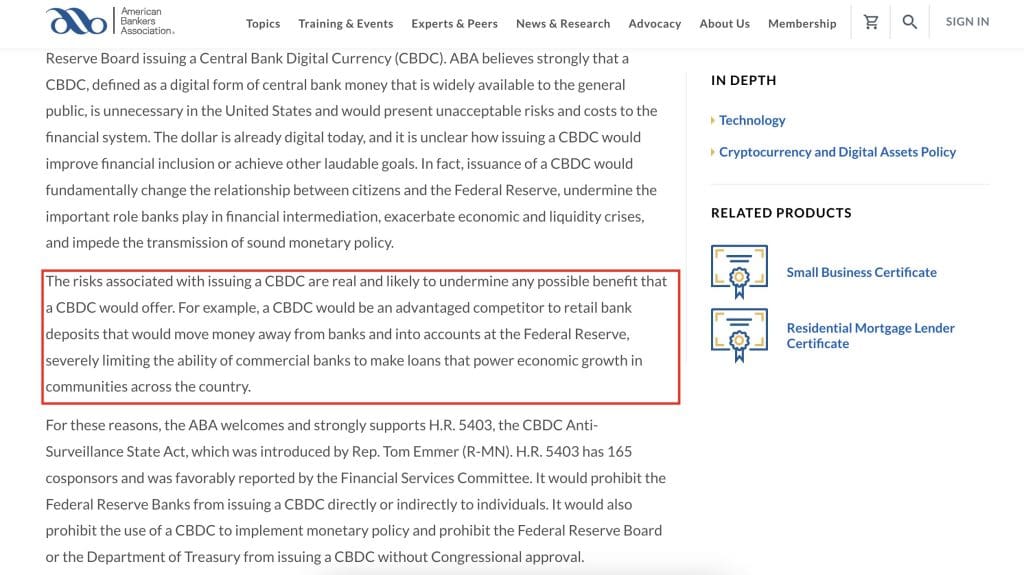US House Passes Anti-CBDC Bill Amid Surveillance Concerns: Report
Key Points:
- US House passed bill banning CBDC.
- Bill now proceeds to Senate for discussion.
US House passes Anti-CBDC bill aiming to prevent the Federal Reserve from creating a Central Bank Digital Currency due to surveillance concerns.

The US House of Representatives has just passed Anti-CBDC bill aiming at prohibiting Central Bank Digital Currency. Congressman Tom Emmer introduced the bill to stop the Federal Reserve from developing a CBDC called the “CBDC Anti-Surveillance State Act.”
Congressman Tom Emmer Introduces Anti-CBDC Bill
The bill halts any CBDC pilot programs before they are even proposed. Furthermore, the Act prohibits the use of a CBDC in conducting monetary policy.
The Federal Reserve Board and the Department of the Treasury are prohibited from issuing a CBDC without Congressional approval. If the bill passes the final hurdle, then the Federal Reserve cannot issue a retail digital currency that could be used to surveil citizens.
Majority Whip Emmer, in support of the Anti-CBDC bill, said that the policies debated and adopted are a response to an administration that has failed to provide the clarity the digital asset industry in the United States desperately needs.
Readmore: Spot Ethereum ETF: BlackRock Re-files Critical Form With SEC
Potential Consequences of CBDCs According to American Bankers Association
According to Emmer, the bill banning the CBDC stops the administrative state under President Biden from rolling out a financial surveillance tool. If improperly designed, the use of such a tool will fundamentally change the lives of every American.
Kirsten Sutton, a spokesperson for the American Bankers Association, in a letter to the House to support the Anti-Surveillance State Act, pointed out the risks associated with issuing a CBDC. Sutton said that those risks could potentially outweigh any potential advantages of a CBDC.

Bill Moves to Senate, Reflecting US Crypto Division
She continued with how a CBDC could very well spell a serious threat to retail bank deposits, driving funds out of banks and into accounts at the Federal Reserve. Because of this, it would also significantly limit commercial banks’ ability to extend loans.
While a majority of countries around the globe are researching or have started to develop their own CBDC, the United States remains divided on the concept and the crypto industry in general. The bill has now passed House and will proceed to the Senate for further discussion.
| DISCLAIMER: The information on this website is provided as general market commentary and does not constitute investment advice. We encourage you to do your own research before investing. |























